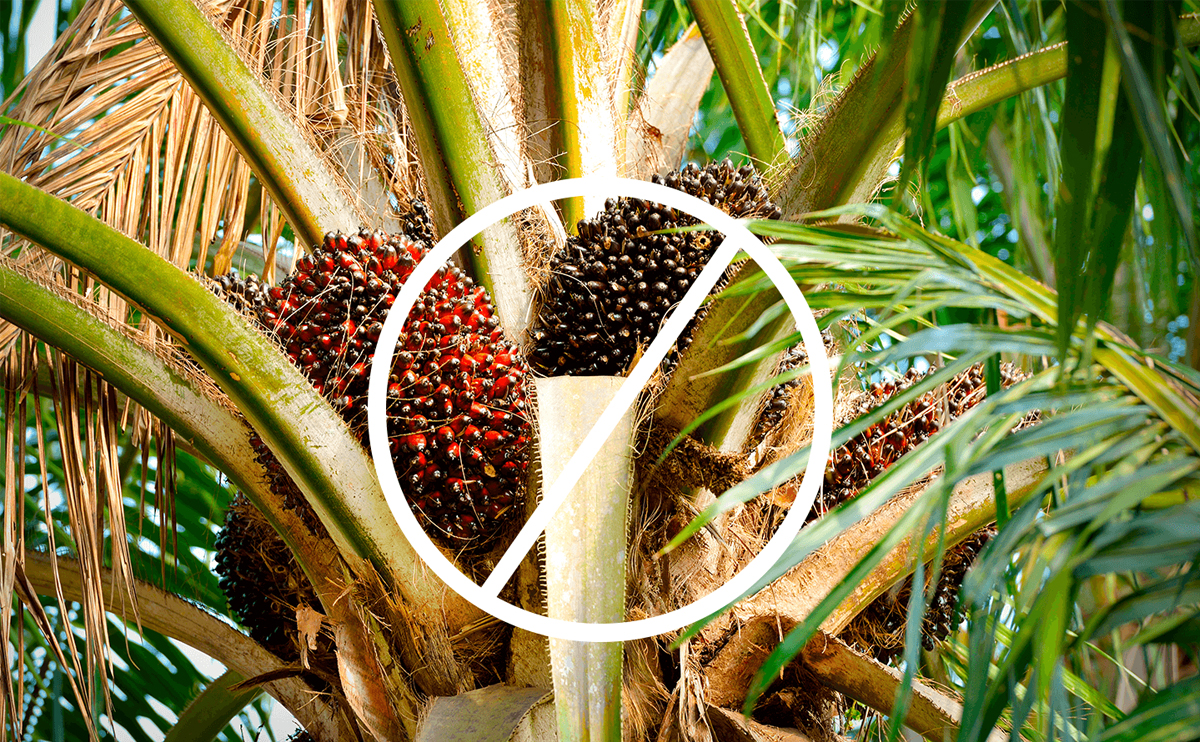Blog
Why our chocolate is palm oil free

What is palm oil?
Palm oil is an ingredient that some chocolate producers use during the chocolate making process. It is a vegetable fat that comes from a plant called the Oil Palm. There are two species of Oil Palm used for chocolate, but the most common one is ‘Elaeis guineesis’.
You can extract two types of oil from the fruit of the plant:
- Crude palm oil: produced by squeezing the flesh of the fruit.
- Palm kernel oil: produced by crushing the kernel (fruit stone).
As Oil Palms need an environment that is warm all year round, they are usually harvested in countries like Indonesia and Malaysia, that are near the equator.
The oil they produce can be used in many ways across many industries. So it shows up in a lot of everyday products, from bread to soap – and, yes, in some brands of chocolate as a cocoa butter replacement.
Some reasons may include:
- Cost: Palm oil has historically been and largely remains a cheaper ingredient.
- Higher melt-point: Unlike other oils, like olive oil, palm oil is solid at room temperature. This is because it has a higher melt-point, so if you are exporting to warmer climates, it may mean your chocolate is at less risk of melting before it’s eaten.
What is the problem with palm oil?
If we take a step back, palm oil is from a plant. So it is not the plant itself which is the problem, it is how it is harvested. If sustainable agriculture practices are ignored, harvesting palm oil can lead to things like:
- widespread habitat destruction, where animals lose their homes.
- loss of forest medicine
- deforestation (forest destruction), which contributes to global warming.
- land and human right violations (like poor working conditions).
There are some organisations now, like RSPO (Roundtable on Sustainable Palm Oil), which are working to change how palm oil is harvested. But change requires governments and businesses to get involved on a large scale and agree to a set of rules, so it remains a complicated issue.
As one of the first ingredients to face large scale activism on social media, we believes the palm oil story has helped business and consumers understand the importance of how things are sourced. “It is perhaps no surprise that in the years since 2009, that we’ve seen a growing movement towards ethically sourcing across almost all industries – not just the food industry”.